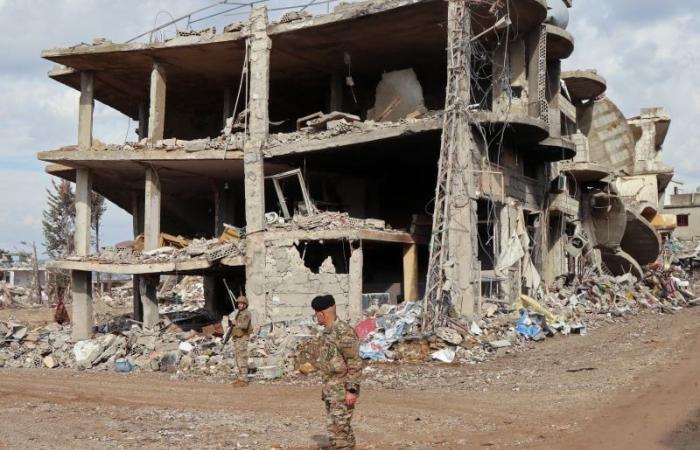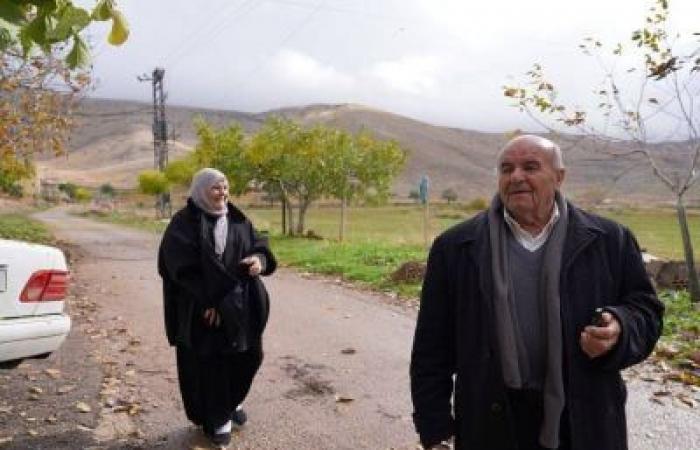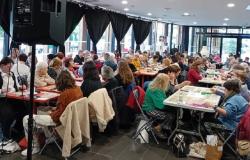After more than a year of war in South Lebanon, which began on October 8, 2023 with the opening by Hezbollah of a “support front” in Gaza, and the intensification of the Israeli offensive in the fall, the Shiite party and the Hebrew state agree, through the United States and France, to establish a ceasefire on November 27 2024. This provides for an end to the fighting, but also for the withdrawal, within 60 days, of the Israeli army from South Lebanon so that the Lebanese army can settle there.
In place for barely a month, this ceasefire, however, could not be more fragile, while Israeli security sources recently told the daily Haaretz that the army of the Hebrew State would prepare “for the possibility of remaining in South Lebanon beyond the 60 days provided for in the agreement”, justifying this by the capacity or not of the Lebanese army to “retake the total control of South Lebanon. On Thursday, the Israeli army deployed in the Wadi Hojeir valley in southern Lebanon, erecting an earth wall to cut off a road and injuring a man. The day before, an Israeli strike targeted the Baalbeck region, in the Bekaa. In all, there have also been around thirty deaths on the Lebanese side since the start of the truce.
Read also
In the middle of a diplomatic tour, Mikati warns: beware of worst-case scenarios!
But in the middle of the end-of-year holiday season, and while part of the diaspora has finally chosen to make the trip to the country, for some, life in Lebanon seems to have returned to normal. For others, nothing will ever be the same again.
“Where has my whole life gone? »
In November, Yehya*’s house was destroyed by an Israeli strike in the Choueifate neighborhood, in the southern suburbs of Beirut. Sitting at his desk, cigarette in hand, he remembers the building on fire, collapsing stone by stone, pieces of glass littering the ground. “Where has my whole life gone? Where are my memories? » he asks. When asked about what he thinks of this ceasefire agreement, the man is categorical: “This truce, from the start, is doomed to failure. » In the eyes of those who say they “have nothing left to lose”, the truce is ephemeral and war will return. Originally from the farms of Chebaa, a disputed territory between Lebanon and Israel, Yehya must “rebuild everything from scratch”.
Rayyan* describes a similar feeling, having left Lebanon for Nigeria during the conflict. Describing the fact of being back home, in the southern suburbs of Beirut, as “surreal”, the young woman must readjust to daily life amid the destruction: “A few days ago, I wanted to order from a neighborhood store. Its owner called me to tell me everything had been destroyed. » For her, the establishment of the ceasefire a month ago also marked the end of the war, or at least of “the large-scale one”. Full of hope that the truce will last, the young woman, currently looking for a job, notes that opportunities have never been so numerous: “The fact that Lebanon is emerging from the war leads NGOs to look for work. personnel for humanitarian or emergency response. »
“On the left, Lebanon; on the right, another »
For Edward*, who spent the war in a small village in the heights about twenty minutes from Beirut, the maintenance of the truce will depend in part on the willingness of Hezbollah to surrender its weapons. “If the party stops, Israel will not continue,” he said. The sixty-year-old notes that the topics of discussion have changed since the fighting stopped, as much as the atmosphere in the country. In his entourage, Shiite citizens express their fed up, particularly with the lack of financial aid provided by the party. Thus, he explains that the militia “can no longer have the same ambitions” while its popular base no longer wants this war. In his eyes, the ceasefire is designed to last beyond 60 days.
Read also
In Kfar Chouba, the Khalifé family will have to rebuild their house “for the sixth time”
At his side, his son Charly*, expatriated in Qatar for a few weeks, also wants to believe in it, even if he notes that the ceasefire is not respected by Israel. He is counting on “a transition phase” during which attacks could take place, without a return to total war. During the conflict, the twenty-year-old limited his movements; this is no longer the case at all now. “I go out and enjoy the holidays, my state of mind has changed,” he describes.
Everyone shares this impression of “two Lebanons in one”: “You turn your head to the left, you have a Lebanon. On the right, you have another,” summarizes Charly. On the one hand, the reality of Yehya, not blaming anyone that life goes on while his world, with the war, has stopped turning. On the other, Rayyan’s state of mind, who sees the end-of-year holiday period as a perfect pretext for the country to return to normal. In the middle, the desire for everyone to move forward: in the words of Charly, “this war must be the last”.
*Last names have been preserved.
After more than a year of war in South Lebanon, which began on October 8, 2023 with the opening by Hezbollah of a “support front” in Gaza, and the intensification of the Israeli offensive in the fall, the Shiite party and the Hebrew state agree, through the United States and France, to establish a ceasefire on November 27 2024….
- -






